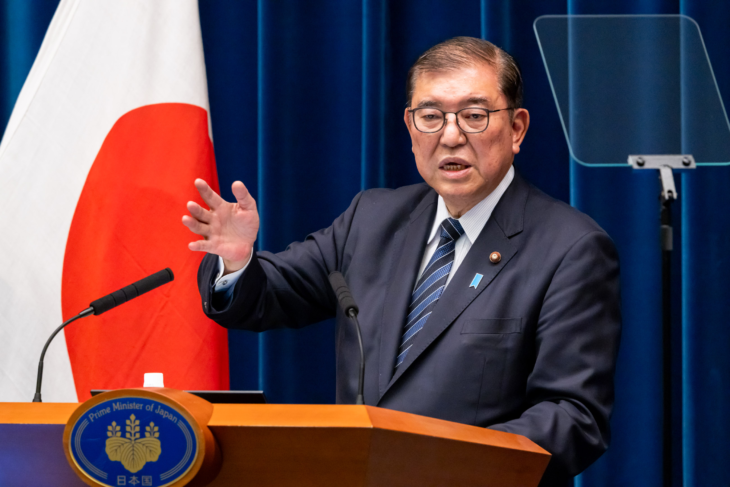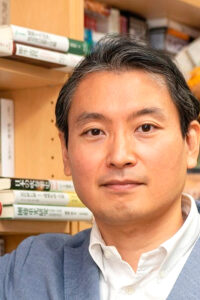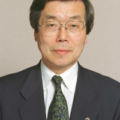Japanese Politics at a Turning Point: From One-Party Dominance to the Era of Deliberative Debate

On December 24, 2024, Prime Minister Ishiba Shigeru held a press conference on the conclusion of the 216th extraordinary session of the Diet. Prime Minister Ishiba emphasized, “During this Diet session, the ruling and opposition parties engaged in candid discussions without restraint. I felt this was highly suitable for what was a truly ‘deliberative Diet.’” Photo: Cabinet Public Affairs Office
2024 was an election year in which national elections were held around the world. Initially, some people thought there would be no election in Japan in 2024. However, in October, the Lower House was dissolved with one year left in its term, and a general election was held. Then, for the first time in 30 years, a minority ruling party was born, and Japanese politics is at a turning point. What does this mean? Let us delve deeper into this turning point.
The last general election for the Lower House was held in October 2021, and the Liberal Democratic Party (LDP), led by President Kishida Fumio, won a landslide victory. It also won the regular election for the Upper House in July 2022. The term of the Lower House members will expire in October 2025, and the regular election for half of the Upper House members will be held in July 2025. The Kishida administration was said to be a lucky cabinet to have three years without an election.
National elections are held very frequently in Japan. The term of office for members of the Lower House is four years, but there are many cases of dissolution mid-term, and the actual average term is about 1,000 days, or about two years and eight months. There have been 29 general elections for the Lower House in postwar Japan, but only one of these elections, in December 1972, was for a full four-year term, to December 1976.
A general election is held every three years to elect half of the members of the Upper House, who serve six-year terms. This means that even if a new government is formed through a general election for the Lower House, it takes about a year and a half for the government to be evaluated by the public. Prior to the Kishida administration and since 2009, the only years without a general or regular election at the national level were 2011, 2015, and 2018.
It is inevitable that a government will become unstable due to repeated elections. But Japanese politics has been stable for a long time. It was the LDP that supported this. Abe’s second administration since 2012 is known to have tried to strengthen the government by taking advantage of the opposition’s weakness and calling elections.
In this environment, the Kishida administration has had a rare three-year term. In the past, the government was judged by the public in a short period of time, and it was difficult to make bold policy decisions such as raising taxes. For this reason, high expectations were placed on the Kishida administration, and it did indeed achieve many of its policies. The increase in defense spending and the accompanying proposal of tax hikes are prime examples.
But should we say that lights are usually followed by shadows? The Kishida administration was unable to complete the three years, and after two years Kishida resigned as LDP president and retired from the government. The media publicized the fact that the secret funds issue surrounding income from party fundraising events had led to distrust in politics. It cannot be denied that the LDP members had been lax. In the three parliamentary elections since 2012, the LDP has won more than 60 percent of the seats on its own, and more than two-thirds when combined with its ruling coalition partner, Komeito. A landslide victory invites complacency. Although the LDP lost seats in the 2021 general election, its dominance remains unchanged, with the LDP holding a majority on its own and over 60 percent when combined with Komeito.
However, this distrust in politics only served to accelerate criticism of the government. The Kishida administration’s approval rating had been steadily declining since the time of the Hiroshima Summit in May 2022, when it was just under 50 percent. In an NHK opinion poll conducted at the time of the general election in 2024, the most important issue for voters was not “politics and money” (11%), but measures to combat the economy and prices (38%). The public has become increasingly dissatisfied with the continuing rise in prices and the depreciation of the yen. The issue of “politics and money” added fuel to the fire.
Faced with a continuing decline in approval ratings, Prime Minister Kishida announced his resignation ahead of the LDP Presidential election in September 2024, and Ishiba Shigeru, who has a clean image, was elected as the new president. A pseudo-change of government, one of the methods by which the LDP has maintained its long-term administration, was carried out. As expected, the cabinet’s approval rating rose to around 50%, but the result of the general election was a crushing defeat: the LDP won only 41% of the total seats of the Lower House, and even when combined with the Komeito party, the ruling coalition fell short of a majority.
There was apparently some discussion about expanding or restructuring the ruling coalition, but in November the second Ishiba administration was formed as a minority ruling party of the LDP and Komeito. This was the first minority government in 30 years, since the Hata Tsutomu (1935–2017) administration in 1994. The Hata administration was forced to resign after only 64 days. The previous example goes back to the second Hatoyama Ichiro (1883–1959) administration in 1955, before the formation of the LDP. Almost no one in the ruling party or government had any experience of being a minority ruling party. There was a lot of anxiety about what would happen.
But if you look around the world, minority ruling parties are not uncommon. Not to mention Europe, where there are many multi-party countries, minority ruling parties are in power in East Asia, such as South Korea and Taiwan. Even within Japan, under the pre-war Constitution of the Empire of Japan, it was normal for governments to be formed as minority ruling parties. Even under the postwar Constitution of Japan, minority ruling parties dominated the government until the formation of the LDP in 1955. The single-party dominance structure that the LDP has long used in postwar Japanese politics is quite unusual, and it can be said that Japan has become a “normal country.” Japanese politics today is indeed in a multi-party state. It is fair to say that a structure has emerged that is capable of transforming the energy of conflict into cooperation.
Prime Minister Ishiba declared that he would lead the government in cooperation with the opposition parties under the slogan of “jukugi (deliberation)” and attended the extraordinary Diet session, which was held for 27 days from the end of November. In the supplementary budget, he accepted the Constitutional Democratic Party of Japan (CDPJ)’s demand that the budget be used to help the earthquake-stricken Noto Peninsula. It is said to be the first time that a supplementary budget bill submitted by the government was amended and passed by the Diet.
Three bills on political reform related to the issue of “politics and money” were passed, including the abolition of expenses for political activities, which was submitted jointly by the opposition parties, and the establishment of a political financing inspection agency, which was submitted by Komeito and the Democratic Party for the People (DPP). In light of these achievements, Prime Minister Ishiba emphasized the successes, saying, “During this Diet session, the ruling and opposition parties engaged in candid discussions without restraint. I felt this was highly suitable for what was a truly ‘jukugi no Kokkai (deliberative Diet).’”
Unlike in the days of one-party rule, when the ruling party refused to hold a debate in the Diet by enforcing party discipline through pre-screening, the opposition party did not insist on opposing just for the sake of opposing, and a meaningful Diet debate has begun. The “jukugi” that took shape in the extraordinary session of the Diet is probably more in keeping with the Japanese national character. In particular, it is well known that Japanese voters have a strong tendency to vote on performance, evaluating the achievements of the government and politicians before voting.
As the new year begins, the regular Diet session will begin in late January 2025, and the Diet debate will become more serious, focusing on the budget deliberations for the new fiscal year. The session will last 150 days, until the end of June. Immediately after that, in July, there will be a regular election for the upper house. How will the government, the ruling party and the opposition parties react? Japanese politics is at a turning point.
Translated from an original article in Japanese written for Discuss Japan. [January 2025]
Keywords
- Shimizu Yuichiro
- Keio University
- Japanese politics
- turning point
- LDP
- Komeito
- minority party rule
- general election
- term
- Kishida administration
- political fundraising
- secret funds
- Ishiba administration
- Hata Tsutomu
- deliberative Diet
 SHIMIZU Yuichiro, Ph.D.
SHIMIZU Yuichiro, Ph.D.


